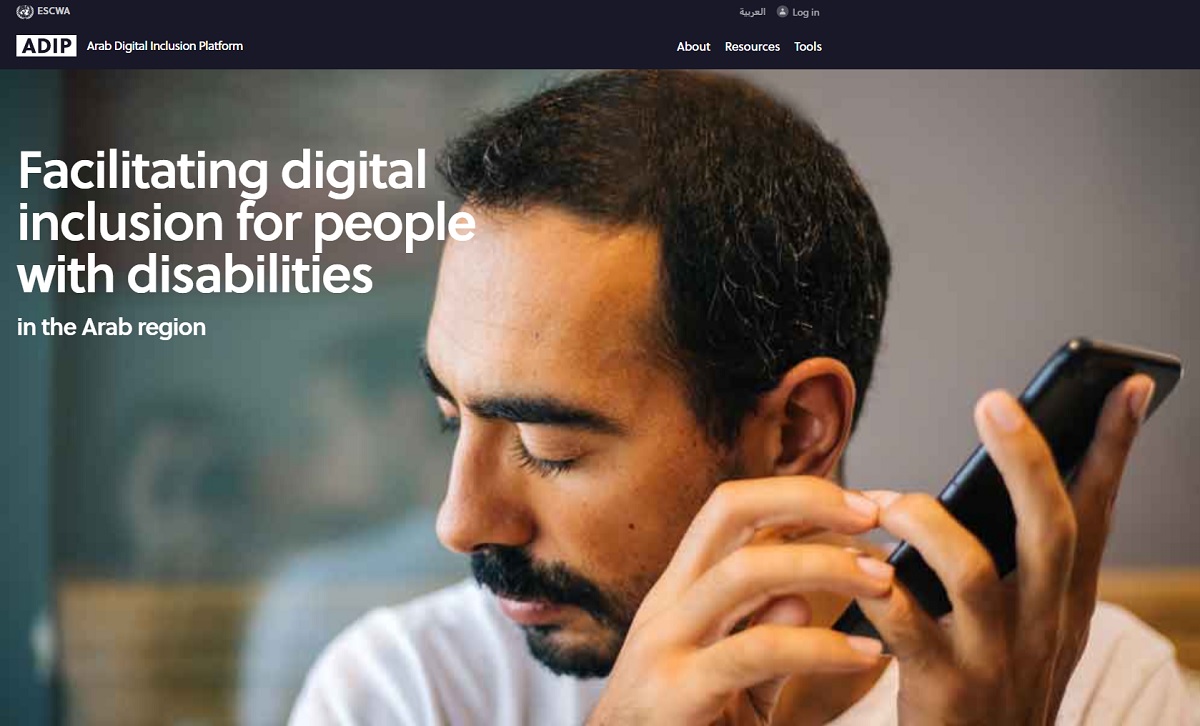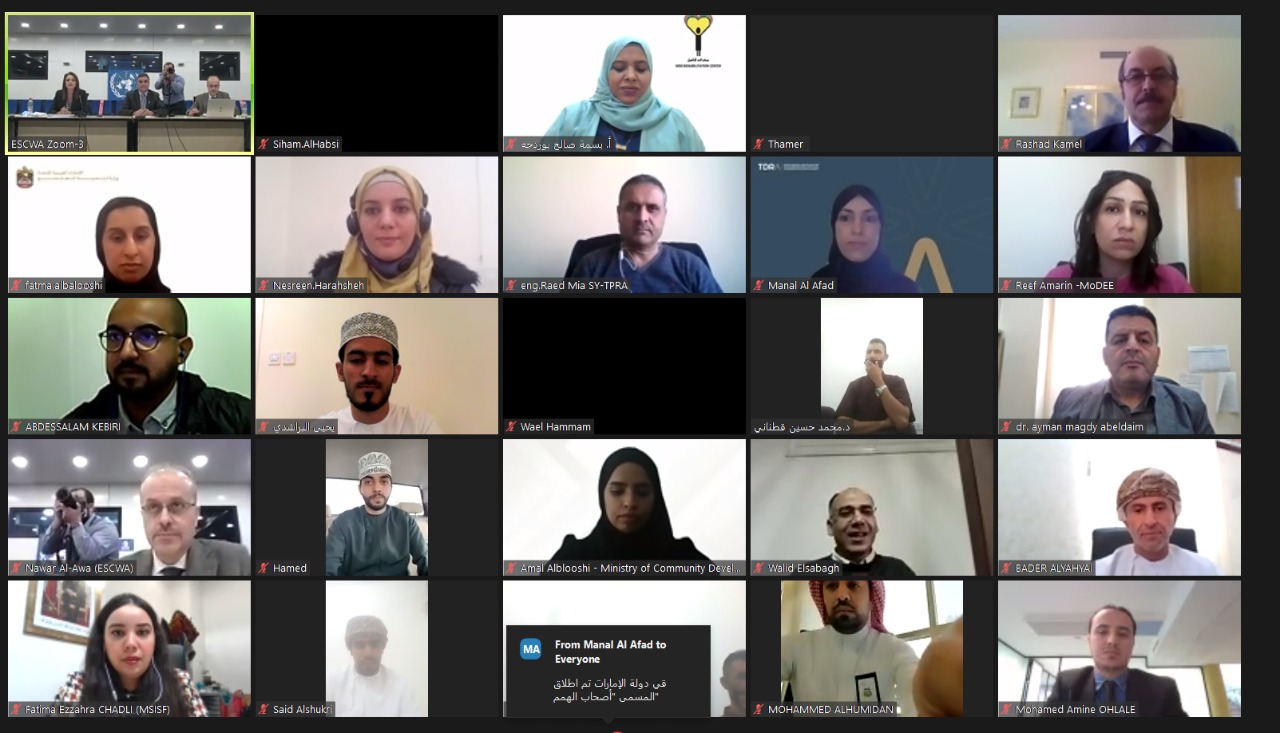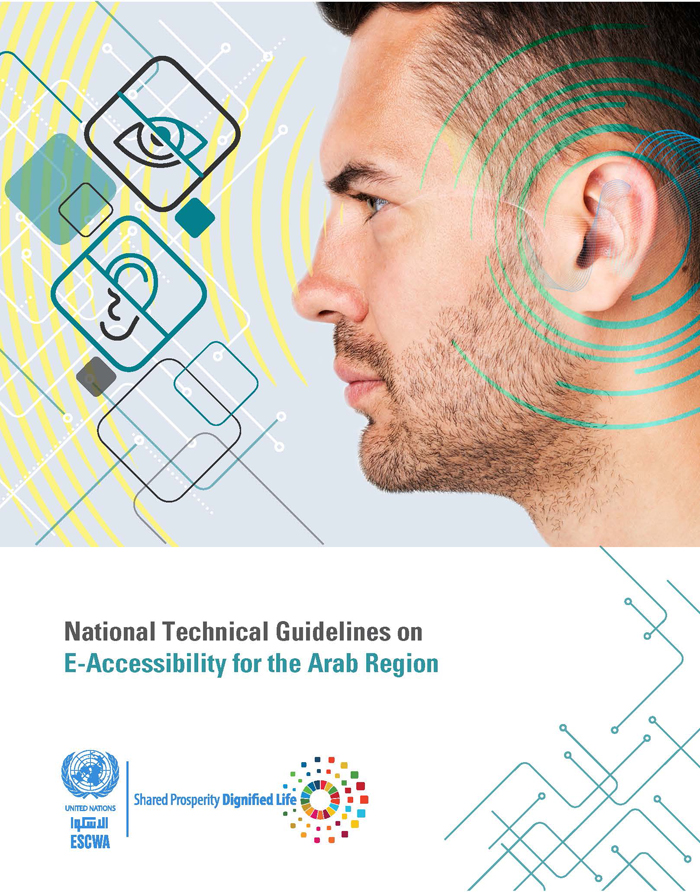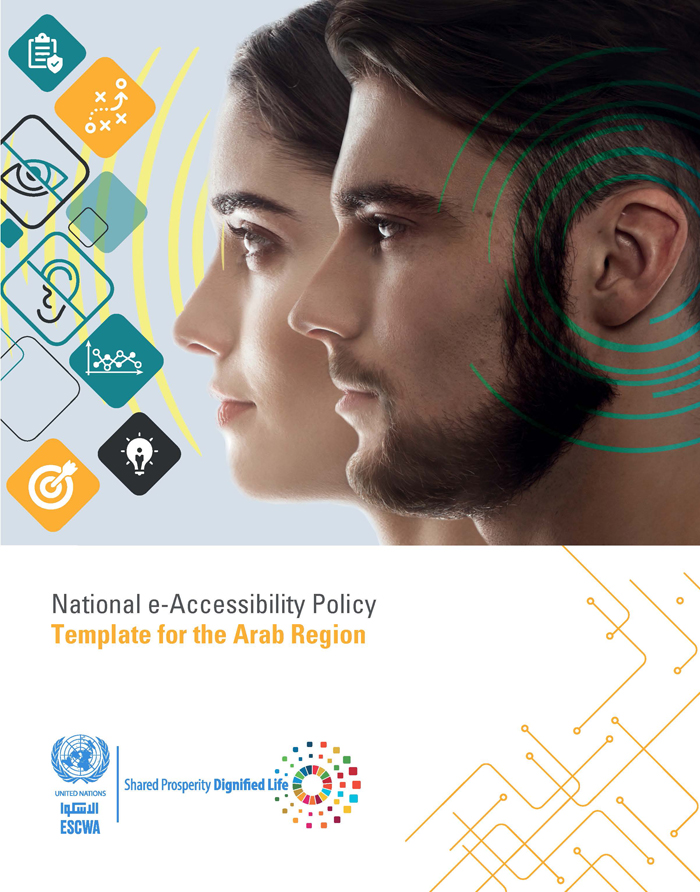In the Arab region, people with disabilities are still among the most marginalized population groups, facing multiple barriers to their participation in society in terms of literacy, education and employment. This situation is emphasized in rural areas, where women with disabilities are particularly marginalized and have less access to education, health and employment.
Information and Communication Technologies (ICT) have a tangible impact on digital inclusion throughout the Arab region and could empower people, promote better access for all and build more inclusive societies. ICT, through e-accessibility, can provide people with disabilities with the means to challenge the barriers they face in education, health, employment and literacy. To promote and better develop e-accessibility in the Arab region, ESCWA launched the Arab Digital Inclusion Platform (ADIP) project in 2020.
The training of trainers workshop focuses on two templates developed by ESCWA:
- The national e-accessibility policy template for the Arab region, which can be used to develop a general framework for national policies that supports access to ICT and public services for persons with disabilities;
- The national technical guidelines on e-accessibility for the Arab region, which aims to improve the lives of persons with disabilities, despite current minimal accessibility of websites and digital platforms.
The regional training of trainers workshop aims to provide nominated delegates with deeper knowledge and hands-on training in the use and adaptation of the ESCWA templates on e-accessibility. These skills are essential to the national roll-out of the ADIP project, when trainers will help to conduct activities to disseminate and use the ESCWA e-accessibility templates.




